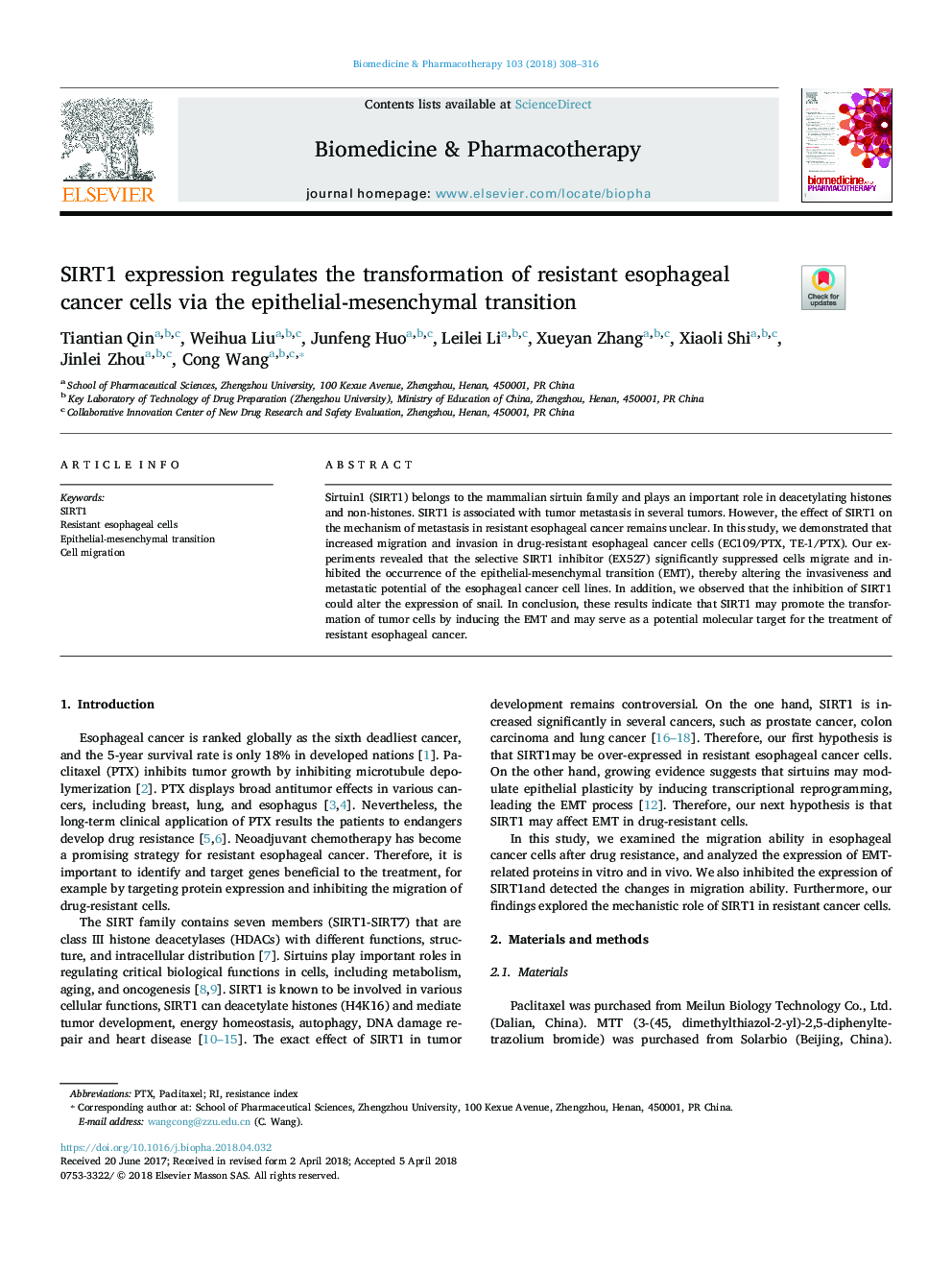| Article ID | Journal | Published Year | Pages | File Type |
|---|---|---|---|---|
| 8525326 | Biomedicine & Pharmacotherapy | 2018 | 9 Pages |
Abstract
Sirtuin1 (SIRT1) belongs to the mammalian sirtuin family and plays an important role in deacetylating histones and non-histones. SIRT1 is associated with tumor metastasis in several tumors. However, the effect of SIRT1 on the mechanism of metastasis in resistant esophageal cancer remains unclear. In this study, we demonstrated that increased migration and invasion in drug-resistant esophageal cancer cells (EC109/PTX, TE-1/PTX). Our experiments revealed that the selective SIRT1 inhibitor (EX527) significantly suppressed cells migrate and inhibited the occurrence of the epithelial-mesenchymal transition (EMT), thereby altering the invasiveness and metastatic potential of the esophageal cancer cell lines. In addition, we observed that the inhibition of SIRT1 could alter the expression of snail. In conclusion, these results indicate that SIRT1 may promote the transformation of tumor cells by inducing the EMT and may serve as a potential molecular target for the treatment of resistant esophageal cancer.
Related Topics
Health Sciences
Medicine and Dentistry
Oncology
Authors
Tiantian Qin, Weihua Liu, Junfeng Huo, Leilei Li, Xueyan Zhang, Xiaoli Shi, Jinlei Zhou, Cong Wang,
